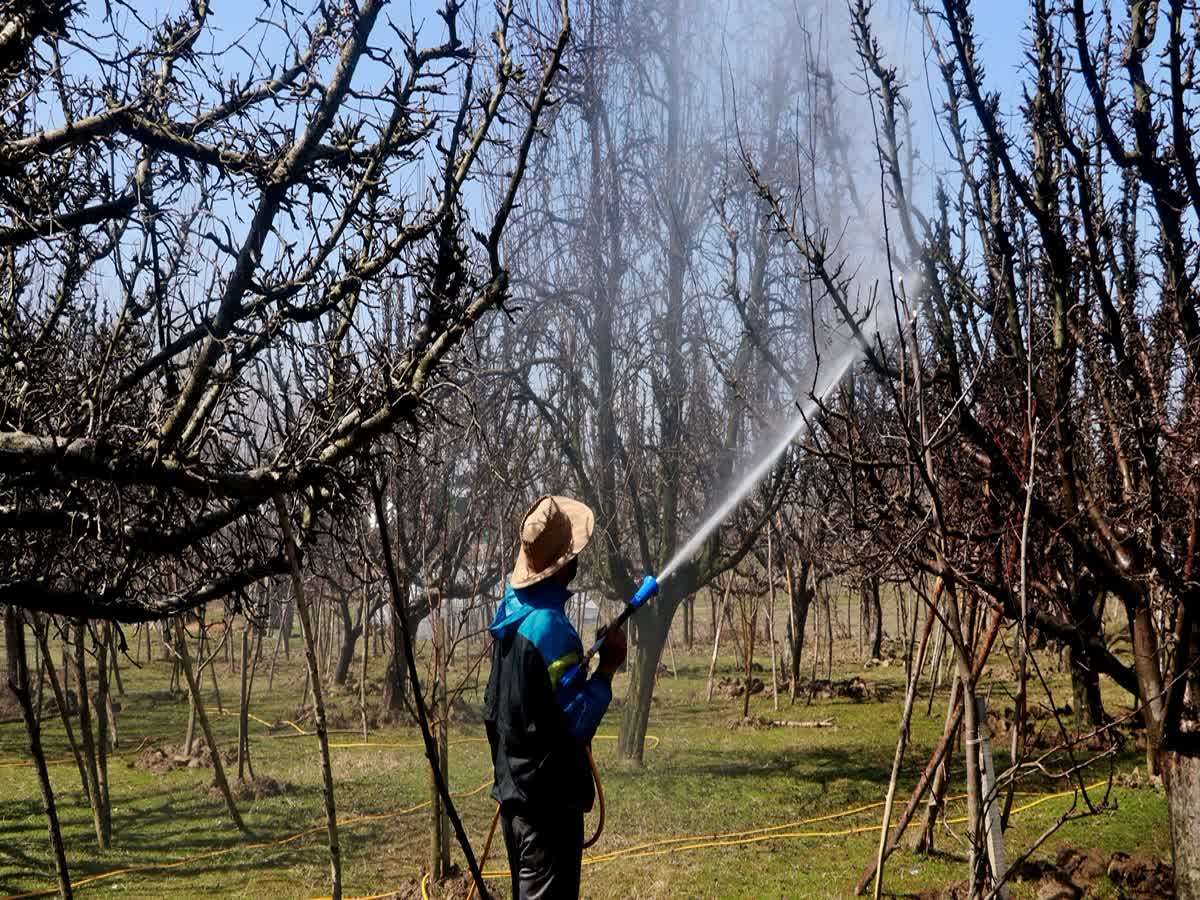A Grim Health Crisis Linked to Hazardous Practices in Kashmir’s Orchard Economy
Srinagar, 14 April 2025: A Growing Public Health Concern
In Kashmir, the steep rise in cancer cases, particularly brain tumors, has emerged as an alarming health crisis. Studies and expert observations link this increase to pesticide use in orchard farming, a cornerstone of Kashmir’s economy. Despite evidence highlighting the carcinogenic risks of certain chemicals widely sprayed in orchards, stringent safety regulations, public awareness, and preventive measures remain elusive in the region.
Prevalence and Impact
Brain tumors have become especially prevalent in districts like Anantnag, Budgam, and Baramulla, while smaller districts like Kulgam and Shopian also report significant cases despite their smaller size and population. According to a landmark study titled “Brain cancer and pesticide relationship in orchard farmers of Kashmir,” published in the Indian Journal of Occupational and Environmental Medicine, 90% of brain tumor patients in the Valley were exposed to pesticides, with cases involving high-grade, aggressive tumors.
The study identified chemicals such as Mancozeb, Captan, and Chlorpyriphos—classified as carcinogens by the European Union—as key culprits. Kashmir’s orchards, spanning over 193,109 hectares, are heavily reliant on these pesticides, with usage estimated at thousands of metric tonnes annually.
Hazards of Pesticide Use
Mancozeb, a fungicide popular for combating apple scab, and Captan, used for broad disease control, have been banned in the European Union due to their health and environmental risks. Yet in Kashmir, these chemicals remain integral to orchard farming practices. Their hazardous impacts extend beyond orchardists and those living near orchards, as pesticide residues infiltrate water bodies, impacting far-reaching areas.
A senior oncologist emphasized the lack of safety protocols in pesticide use. “The food safety and public health engineering departments have been criminally silent on pesticide contamination in water. Orchardists spray without safety gear, and adherence to spraying schedules is poor,” he stated.
Urgent Measures Needed
The dire health consequences underscore the urgent need for action. Steps that could mitigate the crisis include:
- Quality Regulation of Pesticides: Ensuring rigorous checks on pesticide safety and efficacy to minimize risks.
- Promotion of Pest-Resilient Fruit Varieties: Introducing eco-friendly alternatives to reduce dependency on harmful chemicals.
- Exploration of Organic Farming: Transitioning to sustainable practices to protect human health and the environment.
- Public Awareness Campaigns: Educating orchardists and consumers on the health risks associated with pesticide exposure.
- Research on Contamination: Expanding studies to trace pesticide presence in food and water chains and their long-term impact.
Looking Ahead
As orchard farming forms the backbone of Kashmir’s economy and the livelihood for lakhs, balancing agricultural productivity with public health is critical. Safeguarding the population requires a collective effort from healthcare authorities, policymakers, and the farming community. Without urgent intervention, the consequences could devastate future generations.




